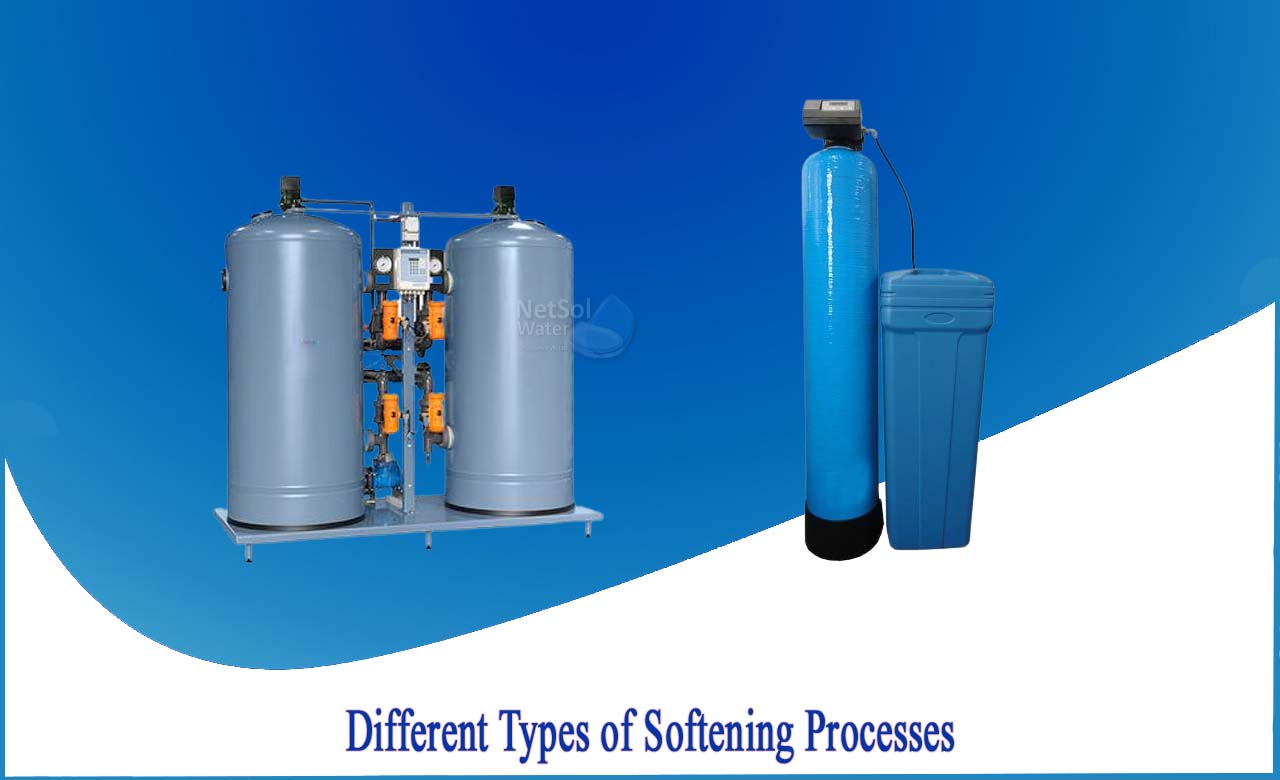Hard water can be an issue because the calcium and magnesium ions react with the soap's higher fatty acids to form an insoluble gelatinous curd, resulting in soap waste (this objectionable reaction does not take place with modern detergents).
Calcium and magnesium in hard water produce a hard, adhering scale on the plates of boilers. Fuel consumption rises as a result of the scale's poor heat conductivity, and the boiler soon deteriorates due to external overheating of the plates. If there is sodium carbonate present, it hydrolyses to produce free alkali, which causes caustic embrittlement and boiler plate failure.
What are The Different Types of Water Softening Process?
Ion exchange or adding compounds that generate insoluble precipitates are two methods for softening water. Ammonia, borax, calcium hydroxide (slaked lime), or tri-sodium phosphate are some of the chemicals used for softening on a modest scale, frequently in combination with sodium carbonate (soda ash). To eliminate the precipitates, the lime-soda method of water softening must be followed by sedimentation and filtration. On a wide scale, water can be chemically softened by adding just enough lime to precipitate the calcium as carbonate and the magnesium as hydroxide, followed by the addition of sodium carbonate to eliminate the leftover calcium salts.
Water softening by ion exchange is a typical industrial practise. Water is passed through columns of a natural or synthetic resin that exchanges sodium ions for calcium and magnesium ions. Calcium and magnesium begin to appear in the water leaving the column after it has been in use for a while. The column must then be regenerated by slowly pouring a concentrated solution of common salt through it; the surplus sodium ions displace the ions that cause hardness, and the bed of exchanger is ready to use again after flushing with water.
Ion exchange resins for softening
The resins are industrially manufactured organic compounds. Their unique feature is that they have a "mobile" functional group, which means that there is a chemical balance between the resin and the ions in the water.
Ion balance of the resins:
|
R-Na |
+ |
Ca |
↔ |
R-Ca |
+ |
Na |
|
resin in sodium form |
calcium |
resin in calcium form |
sodium |
When calcium and magnesium-containing water flows across the resins in sodium form, they are exchanged for sodium, which is then released in the water. The softening process does this by replacing calcium and magnesium (whose carbonates generate scale) with sodium carbonate, which is completely soluble.
Naturally, the resins will eventually be unable to replace calcium and magnesium since there will be no more (or a very little number) sodium ions available for exchange.
THE SOFTENERS
Softeners are the equipment’s that enable the ion exchange process to soften water.Simply put, the softener might be a housing filled with resins through which water runs and is softened.However, the softer must also allow for resin regeneration; as a result, there are numerous varieties of softeners, each with its own set of characteristics, not just in terms of size but also in terms of how regeneration is handled.The simplest basic softener features an entrance directly above the resins to input the salt, after which water will flow through the resins to slowly dissolve the salt.
This is the simplest basic softener, and the basic features remain the same; now, an injector draws a concentrated solution of salt (brine) into the softener, utilising the hydraulic energy of the water to create brine suction. This method eliminates the need to open the resins' casing.
Dual system softeners are very popular; they allow for continuous feeding of treated water 24 hours a day, without interruption. One column is always dedicated to service, while the other is dedicated to regeneration or stand-by. The regeneration (work exchange across columns) is normally controlled by a volume schedule.Obviously, the correct selection of a softener's automatic mode is dependent on the softener's application.
Netsol Water is Greater Noida-based leading water & wastewater treatment plant manufacturer. We are industry's most demanding company based on client review and work quality. We are known as best commercial RO plant manufacturers, industrial RO plant manufacturer, sewage treatment plant manufacturer, and effluent treatment plant manufacturers. Apart from this 24x7 customer support is our USP. Call on +91-9650608473, or write us at enquiry@netsolwater.com for any support, inquiry or product-purchase related query.



